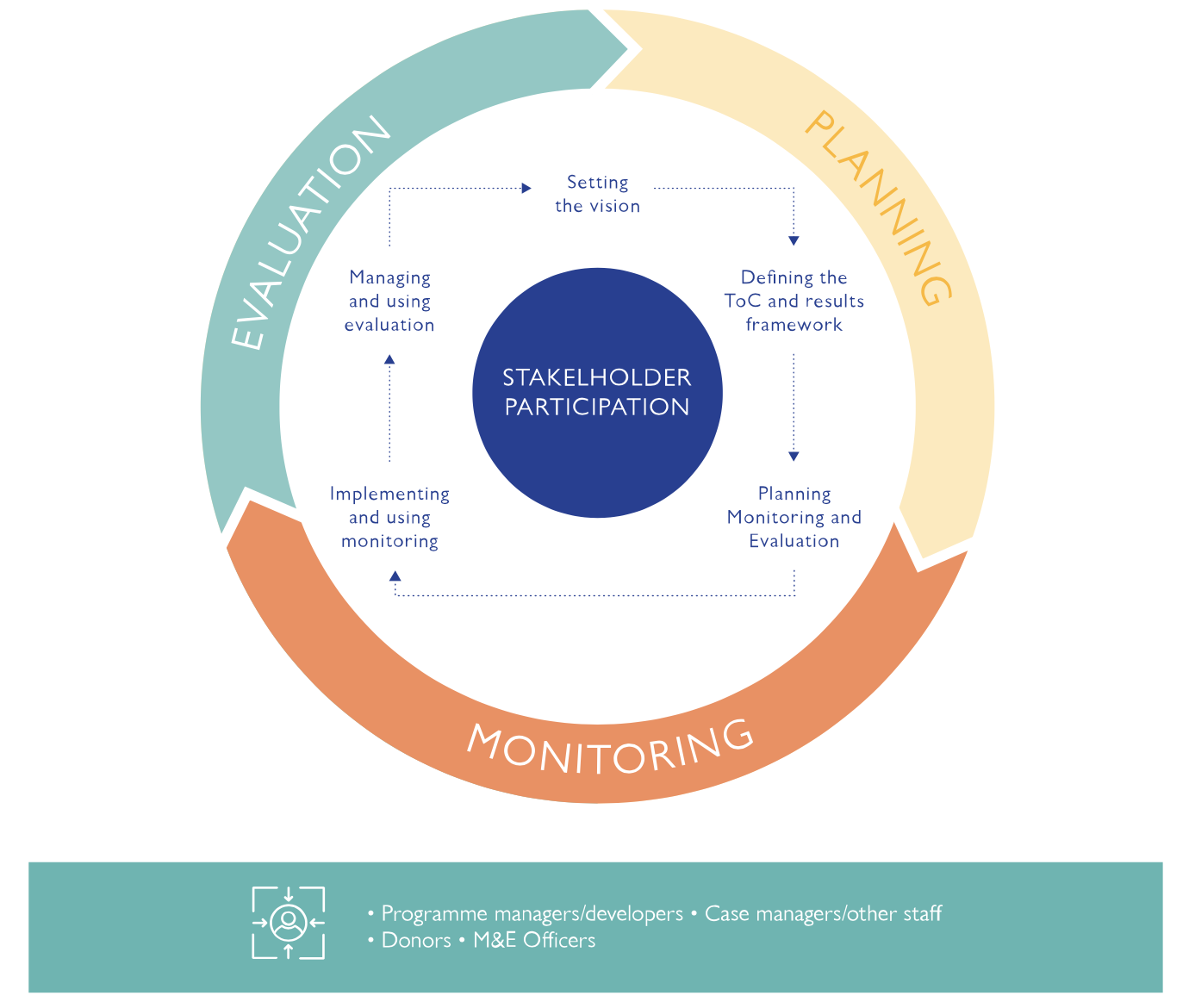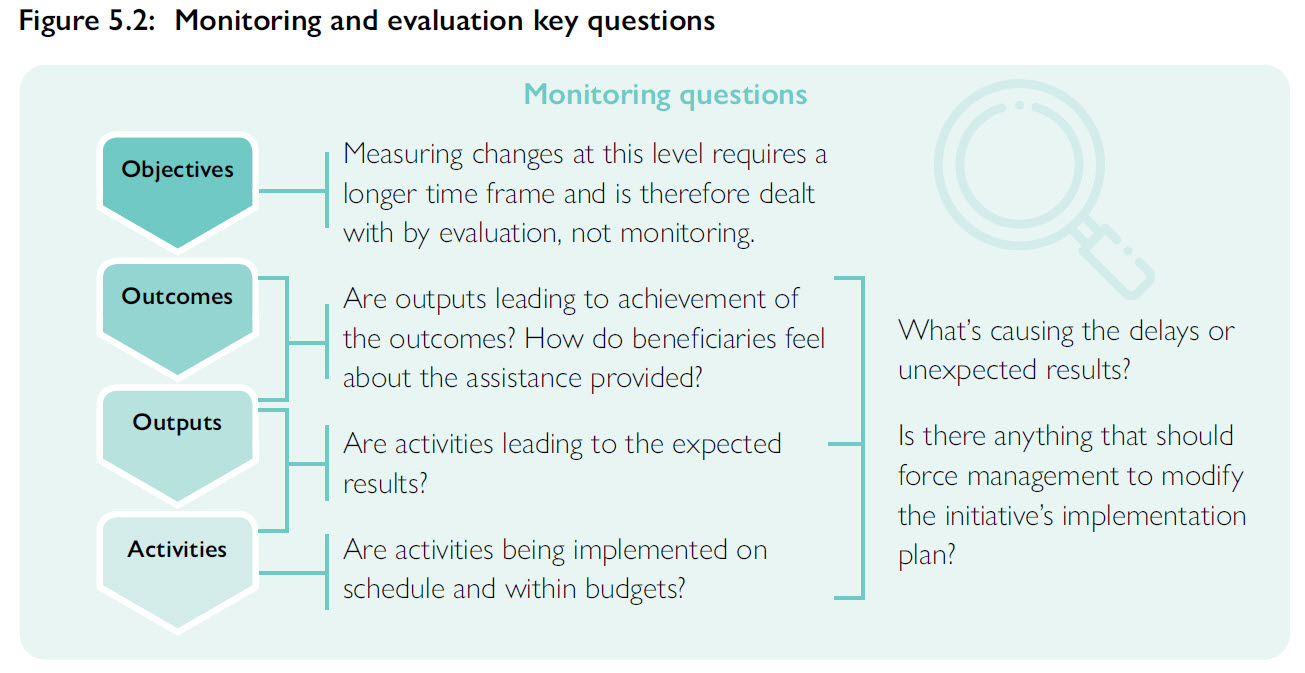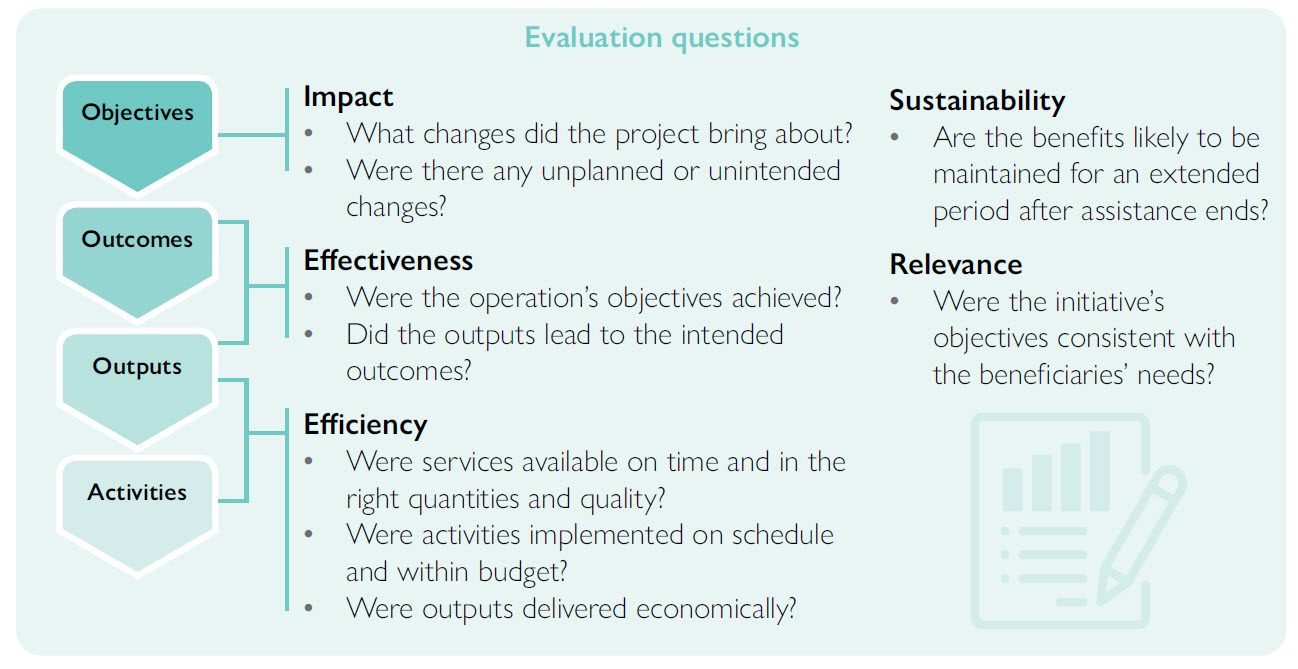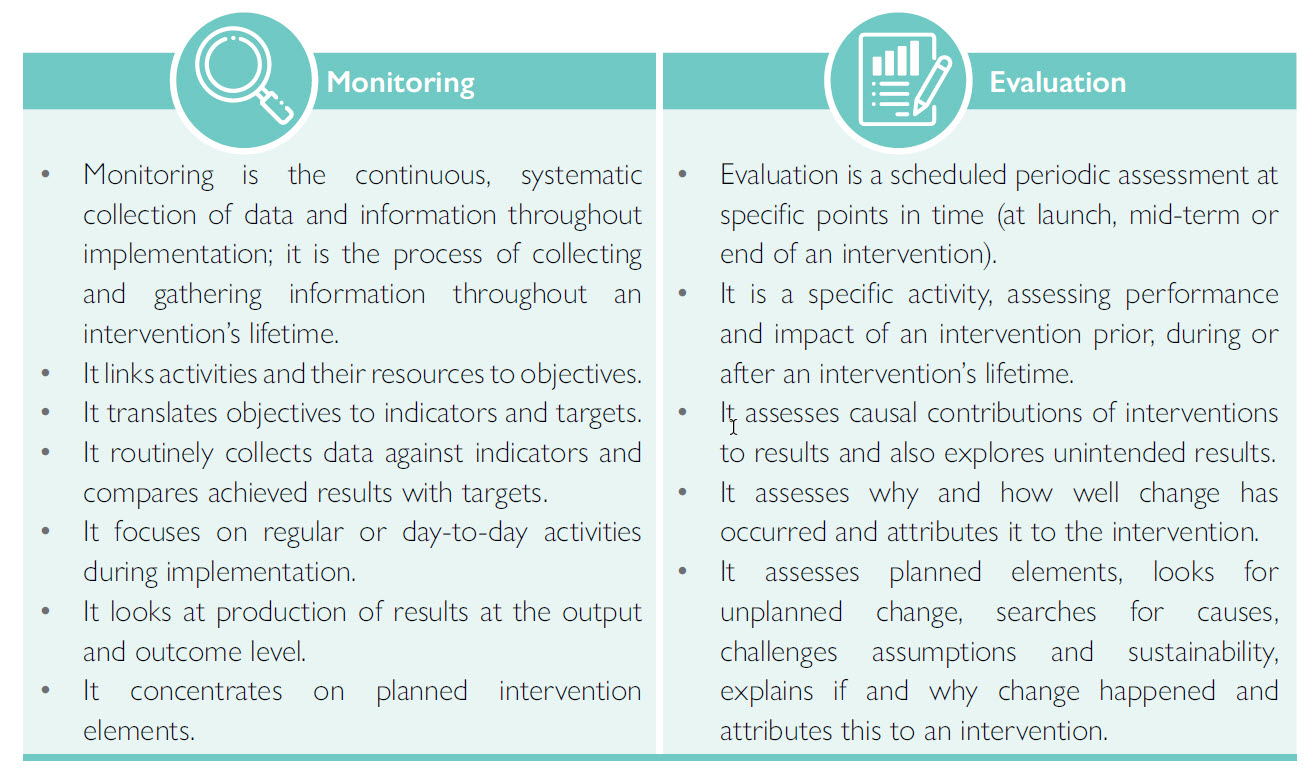M&E, including data collection, analysis and learning, is key to helping implementers and other stakeholders understand the outcomes reintegration programmes have on returnees, communities and countries of origin. They can support the improvement of reintegration programmes and their outcomes.
M&E is part of a results-based management (RBM)40 system. RBM is based on clearly defined and measurable results, and uses various processes, methodologies and tools to achieve those results. Results-based M&E moves from focusing on outputs to emphasizing outcomes and impact. In this way, M&E helps to:
-
Demonstrate results as part of accountability to beneficiaries and donors;
-
Put in place the right mechanisms for principled and evidence-based approaches;
-
Identify possible gaps and improve reintegration programming through evidence-based learning;
-
Provide evidence on the challenges and opportunities of reintegration for governments and non-governmental partners, migrants and non-migrants;
-
Ensure availability of reliable data for analysis and research purposes.
M&E can be viewed as a tool to enable results-based management – a management tool to help decision makers track progress and show an intervention’s impact. M&E should therefore be incorporated throughout a programme’s life cycle.
Figure 5.1: Planning, monitoring and evaluation cycle41

What is monitoring? 42 Monitoring is a continuous function that uses the systematic collection of data on specific indicators to provide management and stakeholders of an ongoing development initiative with information on the extent to which progress towards programme objectives has been made.
Why monitor? Monitoring generates information for timely decision-making. In this way it helps decision makers be proactive, rather than reactive, in situations where it is too late to control damage. Monitoring helps determine whether:
-
Planned activities are actually taking place;
-
There are gaps in their implementation;
-
Resources are being used efficiently;
-
The programme’s operating context has changed.
What is evaluation? Evaluation is the systematic and objective assessment of the design, implementation and results of an ongoing or completed project, programme or policy. It differs from monitoring in that it involves a judgement of the value of the activity and its results.43
Why evaluate? Monitoring asks the questions “what has been done? How has it been done? When has it been done?”. Evaluation also answers these questions, and in addition helps answer the questions “why and how well it was done?”. Evaluation allows for critical examination of interventions. Some evaluations also help answer why one intervention worked better than another.
Evaluations are the main pathway towards discussing causality. Monitoring shows whether indicators have changed, but it is limited in explaining in detail why this change occurred. Evaluations complement monitoring by investigating why changes did or did not occur and drawing conclusions about why this did (or did not) happen. Evaluations contribute not only to accountability, but to creating space for reflection, learning and sharing findings. They are a source of reliable information to help improve assistance to direct beneficiaries, partners and donors.
➔ Monitoring versus evaluation
Although often grouped together, monitoring and evaluation are two distinct but related functions. The main differences between them are their focus on assessment and their timing in terms of the programme cycle.
Monitoring helps identify immediate patterns and trends that are useful for managing programme implementation. Monitoring focuses more on immediate and intermediate results. Measuring longer-term results such as progress towards long-term outcomes or objectives requires a longer time frame and more focused assessment. This is provided by evaluation.
Monitoring and evaluation are complementary – as well as mutually beneficial – functions.



5.1.1 Ethical considerations for M&E
When carrying out M&E activities, it is important to adhere to specific norms and standards. For evaluation, adhering to UNEG’s Norms and Standards for Evaluation is recommended.44 IOM also developed a monitoring policy and an evaluation policy in 201845 and as part of this laid out monitoring principles: credibility, utility, ethics, impartiality, transparency, disclosure and participation. M&E practitioners should be careful to follow all ethical principles. Below is a list of ethical considerations that are based on the IOM monitoring policy.
Table 5.1: Ethical considerations for M&E
| Ethical considerations | |
|---|---|
| Personal and professional integrity |
|
| No personal or sectoral interests |
|
| Respect the right of institutions and beneficiaries |
|
| Ensure privacy, data protection and confidentiality |
|
40 UNDG, Results-based Management Handbook (New York, 2011).
41 UNDP, Handbook on Planning, Monitoring and Evaluating for Development Results (2009).
42 IOM, Monitoring Policy (Geneva, 2018).
43 OECD/DAC, Glossary of Key Terms in Evaluation and Results Based Management (Paris, 2002).
44 UNEG Norms and Standards for Evaluation (New York, 2016).
45 IOM Monitoring Policy (Geneva, 2018).
- 5.1/5.5
- Next